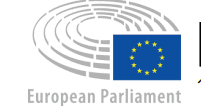having regard to the Commission communication of 8 November 2017 entitled 'Towards the broadest use of alternative fuels - an Action Plan on Alternative Fuels Infrastructure under Article 10(6) of Directive 2014/94/EU, including the assessment of national policy frameworks under Article 10(2) of Directive 2014/94/EU (COM (2017) 0652).
.....
Notes that the Commission's evaluation of the National Framework Plans (NFPs) reveals differing levels of effort, ambition and available funding between Member States and that the deployment of alternative fuels falls short of being comprehensive and evenly distributed; calls therefore on the Commission to thoroughly assess the NFP projects and ambition levels, to suggest additional measures where needed and to support Member States with best practice examples; invites the Commission to replace the system of NFPs with more efficient instruments, including concrete, binding and enforceable targets, to formulate sustainability criteria; that the Commission take into account suggests the projected and realized uptake of alternative-fuel vehicles and their technological progress, allow Member States flexibility in determining how to reach the targets, and pursue the goal of having a trans-European infrastructure network for all alternative fuels that is accessible, compatible and interoperable;
Calls for the projected increase in journeys and in the volumes transported up to 2030 to be taken into account in order to calculate the scale and appropriately equip the new infrastructure; stresses the importance of the technological advances that are already under way or in the pipeline in the fields of batteries, hydrogen and energy storage, and stresses the need to take account of these advances in the strategic choices that are to be made
Calls on the Commission to create a level playing field between the different alternative fuels ensuring technology neutrality, especially when promoting distribution infrastructure, thus making hydrogen infrastructure mandatory with deployment requirements equal to those for CNG, but adjusting these deployment requirements;
Welcomes the Commission's effort to provide an additional EUR 800 million as start-up financing to support the uptake of alternative fuels infrastructure; doubts, however, that the leverage will be sufficient given the projected need for EUR 5.2 billion up to 2020 and an additional EUR 16-22 billion of overall investment up to 2025(6); urges the Commission to increase the initial funding, to support not only the deployment but also the operation of such infrastructure during the unprofitable market uptake phase, and to focus on the needs of public transport operators, including for supporting infrastructure such as maintenance workshops; highlights that additional public and especially private investment is needed.
Notes that taxation has a major impact on the price competitiveness of alternative fuels; calls therefore on Member States to review their energy taxation frameworks in order to facilitate and incentivize the uptake of low-carbon and carbon-free alternative fuels and to remove present disparities in energy taxation between different transport modes, for example on electricity used for shore- side supply for ships and energy used to generate alternative fuels, including power-to-gas as storage for intermittent renewable energies;
Calls on the Commission to support the decarbonization of the maritime and shipping sector with a clear focus on innovation, digitisation and adaptation of ports and ships; calls on the Commission, Member States and their regions, to establish a common 'LNG blue corridors project for islands', in particular for the outermost regions; andmphasises that shore-side energy supply at both inland and maritime ports can contribute substantially to reducing noise, CO2 and other pollutant emissions while improving air quality;

